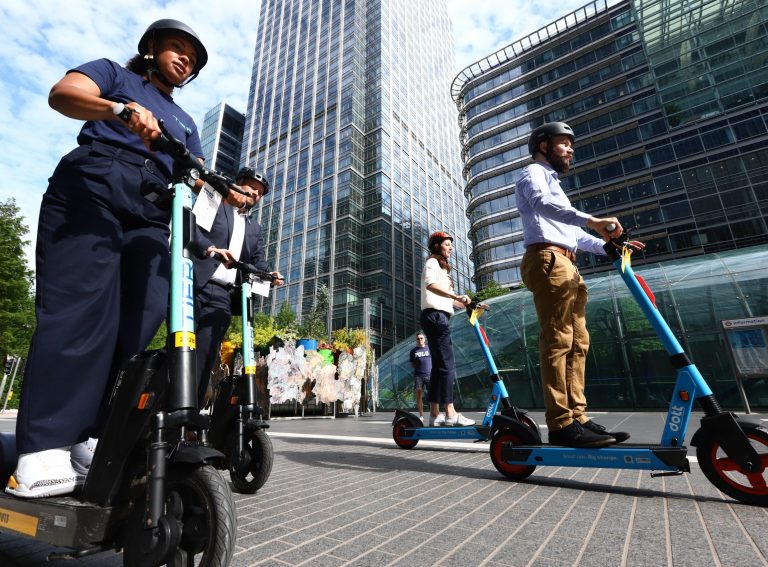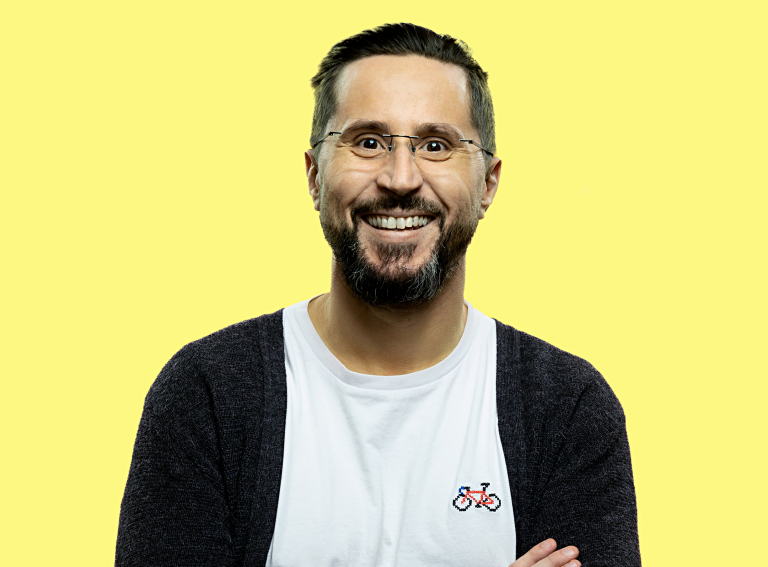What really drives people to launch new mobility businesses? In a new series, Zag takes an in-depth look at the backstories of Founders to understand the origins of their inspiration.
Santi Ureta had plenty of first-hand experience to help guide him when he founded Papaya Technologies in February 2022.
As one of the early employees at Deliveroo, Ureta worked in four different roles for the food servicing giant taking a real hand in its ascendency.
The knowledge and insight gained from his time there not only allowed him time to hone his craft in commercial delivery, but also taught him a lot about what running a successful organisation looks like.
Now, seven years on and with Papaya 18 months into its journey, Ureta is set on developing the biggest ecosystem for sustainable commercial vehicles in the world.
Papaya’s B2B marketplace and vehicle operations tool helps fleets, service providers, OEMs, dealers and Vehicle-as-a Service organisations connect with all their internal and external stakeholders, all in one place.
“We are committed to helping fleet owners electrify their vehicles by giving them the opportunity to make the switch in just a few clicks,” Ureta tells Zag Daily.
Papaya’s origins
At Deliveroo, Ureta was employed in both hands-on operational roles and more strategic positions. At one point, he reported directly to the CEO with a focus on business intelligence, supporting teams across 14 countries.
“The biggest thing I learned at Deliveroo was the combination of elements that an early-stage company needs to combine to be successful,” he says. “I also developed a great network in the industry, and a deep understanding of logistics, unit economics and how to build a profitable business.”
After two and a half years, he was appointed Deliveroo’s Head of Growth in Spain. “We increased growth by more than 300% YOY across the regional cities,” says Ureta.
After leaving Deliveroo, Ureta spent time with Orkestro and Dija (acquired by Gopuff) gaining valuable third-party logistics and fleet operations know-how.
It was at Dija where he set out to source a sustainable fleet to conduct deliveries but found this task unviable due to the fragmented nature of the industry.
“I was working with 10 different providers across multiple countries,” Ureta recalls.
“I then faced the issue of not being able to interact with multiple systems at one time and this made it very difficult to run efficiently and profitably. Working with all these service providers, we often had poor availability so we couldn’t fulfil orders and I had to hire loads of fleet managers to look after a fleet of more than 2,000 vehicles, so it was a mess.”
Taking a stand
It was this experience at Dija that prompted Ureta to take matters into his own hands with the creation of Papaya last year.
His plan was to remove the headaches he experienced by creating a multi-sided platform that allows fleet operators to interact with service providers through a single system. This makes it easier for fleets to collaborate and manage maintenance processes with existing service providers or to find new ones, thereby increasing vehicle uptime.
“Our vehicle management platform has three core elements: operations, communication, and network,” says Ureta.
“We’ve been really busy building this product for a year and a half through customer feedback, working one-on-one with over 20 industry partners using it to manage thousands of vehicles, mechanics and riders. Our role is to build software based on what the people in this industry need.”
For Papaya, developing a tool that allows fleet operators to run a service that works for their customers is of utmost importance, as increasingly it is the quality of service that separates success from failure.
“Previously OEMs thought that having the biggest and best vehicle was the most important thing, but that is not the case,” Ureta explains.
“The customer experience is a combination of the hardware and the service, and many now understand that providing bad service levels will make them lose customers even if they have the best vehicle.”
Promoting transparency
Zag asked Ureta if he is planning on introducing any form of rating or ranking system based on the service companies provide.
“Our goal is not to rate companies, but it’s about bringing transparency into this market.
“When a provider offers their service on the marketplace they will be able to highlight their operational metrics, such as resolution time, availability, SLAs, but it will be their choice to differentiate themselves in the marketplace. We expect this to elevate the quality of services across the whole industry.”
And elevate it does. Early data shows that fleets using Papaya’s full operations tool are reporting availability improvements of up to 30%.
A growing marketplace
The recent launch of Papaya’s B2B marketplace now has 125 vehicles, 80 service providers, and is available across 19 countries, with the UK and Spain being the largest markets.
In one of these countries, the Police have started using Papaya to manage its sustainable vehicles, while more and more logistics firms compare cargo capacity, mileage and price points through the marketplace.
But the most significant change is the number of packages available.
“The amount of diversity means that we’ve got so many possible combinations, with different solutions to purchase or rent or go through a vehicle-as-a-service solution, so fleets can pick and mix.”
Fostering cohesion
Not only does the Papaya’s ecosystem increase visibility and discoverability for players throughout the new mobility space, it also encourages a sense of co-operation across the sector.
“This is a new industry, and we need a mindset change towards collaboration,” said Ureta.
“Everyone is trying to compete and to offer full vertically integrated solutions, stepping on each other’s toes. We believe in collaboration. Pick your strength, triple down on it and use our digital infrastructure to partner and work together.”
Delivery trends
Managing this platform has provided Ureta with great insight into how the sector is evolving.
“Cargo bikes are booming and that’s where we have the biggest range of supply at the moment,” he explains.
“There was a lot of focus on bikes and mopeds for food delivery, but these companies are going through tough times. Now we are noticing other companies like parcel shippers and councils, while more big players are committing to replacing vans in urban areas. A lot of third-party logistics operators are challenging the traditional players by being more efficient and sustainable and providing an appealing proposition for the end user. The big companies are now waking up to this and adapting because they are increasingly seeing the viability of these vehicles, as they are not only sustainable but also cost-effective.”
It is these types of learnings that help Papaya continuously refine and improve its product and service. We asked Ureta what’s the one key message he would want anyone reading this to take away?
“More collaboration. 100%. This is the only way to truly empower fleets to electrify and grow this essential commercial delivery industry.”





